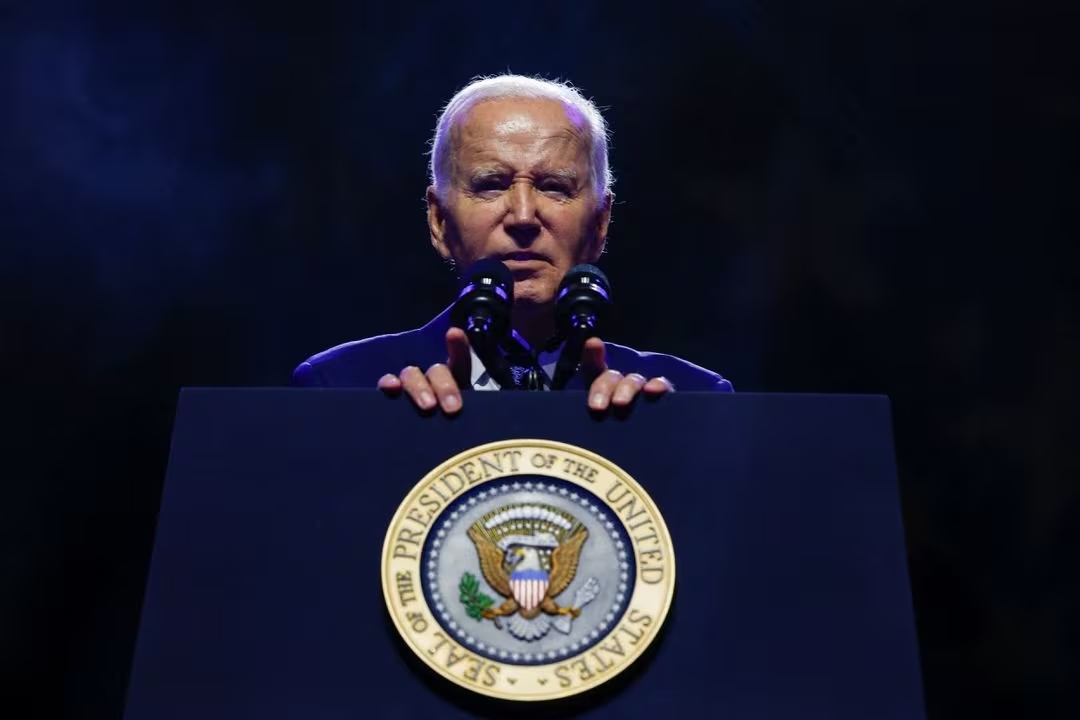As the United States braces for the 2024 elections, President Joe Biden faces a crucial period in shaping the judicial landscape, contending with the prolific legacy of his predecessor, Donald Trump. The White House is at a pivotal juncture, with Biden’s potential to influence the judiciary hanging in the balance, mainly as progressive advocates express concerns over his ability to match Trump’s record of judicial appointments.
During Trump’s four-year term, he appointed 234 judges, leaving a significant conservative imprint on the judiciary. In contrast, as of now, Biden has seen 166 of his nominees take their places on the bench. While initially keeping pace with Trump, 2023 marked a slowdown for Biden, partly due to increased Republican influence in the Senate. This shift has raised alarms among Democrats and liberal groups about the future of judicial diversity and the ability to counterbalance Trump’s legacy.
Russ Feingold, a former Democratic U.S. senator and leader of the American Constitution Society, highlights the situation’s urgency: “Now we’re looking at a situation where if either the presidency switches or the Senate switches, most of this progress probably will be stopped or greatly stifled.”
A commitment to diversifying the judiciary has marked Biden’s tenure. Notably, two-thirds of his confirmed nominees are people of colour, and 108 are women, per the Leadership Conference on Civil and Human Rights. He has also made significant strides in nominating individuals with backgrounds in civil rights law and public defence, a stark contrast to the traditional pool of judges who are predominantly white men, often with backgrounds in prosecution or corporate law.
Some of Biden’s prominent appointments in 2023 include Julie Rikelman, a former abortion rights attorney, and Dale Ho, a voting rights advocate. Senate Majority Leader Chuck Schumer reaffirms this commitment: “All year long, this Senate majority has prioritized confirming judges who add to the bench’s personal and professional diversity, and we’re going to continue going into the new year.”
However, challenges remain. The Senate confirmed 69 judges in 2023, falling short of Trump’s third-year record of 102 confirmations. Factors like the absence of Senator Dianne Feinstein, a vital member of the Senate Judiciary Committee, further complicated the process.
Looking ahead to 2024, Biden faces a significant task. With 30 nominees pending and 53 current vacancies, reaching or surpassing Trump’s four-year total is possible. Yet, hurdles such as the “blue slip” custom in the Senate, giving local senators veto power over nominees, pose a challenge, especially in states with Republican senators.
Leah Litman, a law professor and co-host of the “Strict Scrutiny” podcast, emphasizes the impact of these challenges: “We have seen the effect that Republican blockades for district courts have had.”
There is cautious optimism as Biden prepares to nominate five new judges in Republican-led states, including two in Texas. The White House’s recent successes in confirming judges from states like Indiana, Idaho, and Louisiana offer a glimmer of hope. However, the question remains whether bipartisan collaboration can be sustained during the 2024 elections.
As the political landscape shifts and the 2024 elections draw near, President Biden’s efforts to shape the judiciary face significant challenges. The balance of power in the Senate, the willingness of Republican senators to compromise, and the urgency of fulfilling his commitment to judicial diversity will all play critical roles in determining the legacy of his presidency in this arena.























+ There are no comments
Add yours